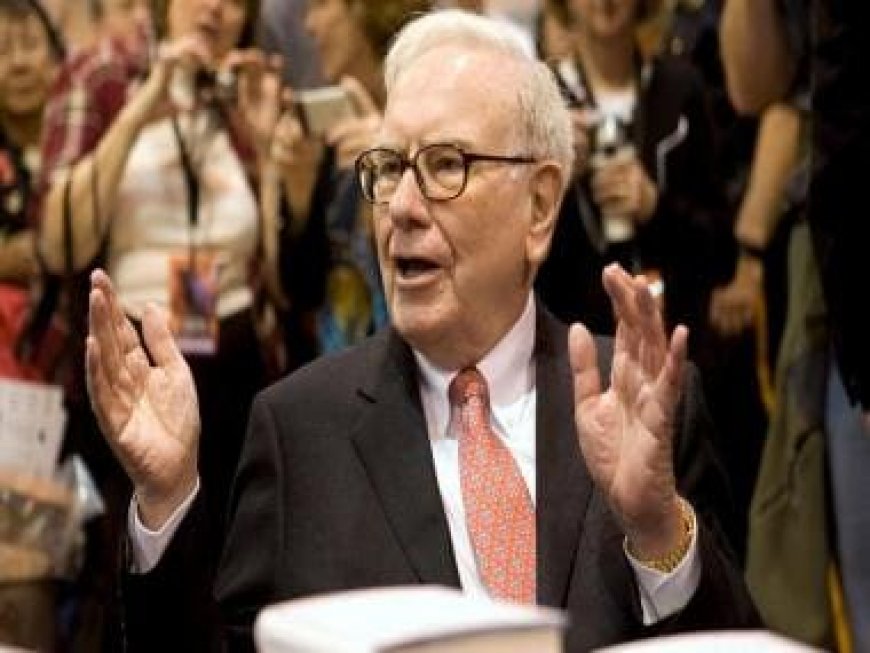Warren Buffett, other investors are shying away from TSMC, selling their stakes. Here’s why
Warren Buffett, other investors are shying away from TSMC, selling their stakes. Here’s why

Amid the growing geopolitical tensions and concerns over escalating Chinese pressure on Taiwan, some equity investors are making bold moves to divest from Taiwan Semiconductor Manufacturing Co. (TSMC).
Investors like Berkshire Hathaway’s Warren Buffett, Martin Currie’s Zehrid Osmani and Shelton Capital Management’s Bruce Kahn have been reducing their TSMC holdings, while Sydney-based hedge fund Plato Investment Management has expressed unease about the world’s largest foundry business.
Zehrid Osmani of Martin Currie began unwinding his TSMC position early last year, completing the divestment by May. Bruce Kahn from Shelton Capital Management started selling TSMC shares in October and eliminated his stake by January. Plato Investment Management, in the meantime, voiced its nervousness about TSMC. Instead, they, along with others, are exploring opportunities with ASML Holding NV, a critical supplier to TSMC.
These decisions contrast with TSMC’s recent position as the most widely held Asian stock among the world’s 40 largest actively managed global equity funds in July, according to Morgan Stanley’s analysis. TSMC’s stock has been performing well this year, with a 22 per cent gain, surpassing ASML’s nearly 10 per cent increase.
Osmani pointed out that due to the majority of TSMC’s operations being in Taiwan, the company faces elevated geopolitical risks. ASML, on the other hand, benefits from the “technological fragmentation that the geopolitical risk brings.”
While few fund managers anticipate military action, the situation in Taiwan remains a top concern, especially considering its importance for US-China relations. Some investors, like Warren Buffett, prioritize the possibility of conflict over TSMC’s dominant chip business.
In contrast, the Netherlands-based ASML enjoys relative stability, serving clients such as Intel Corp. and Samsung Electronics Co. ASML provides lithography machines crucial for chip production.
David Allen of Plato Investment, managing A$11 billion ($7 billion), avoids TSMC and favors ASML, citing concerns about TSMC’s market valuations in the face of deteriorating sovereignty perspectives.
Bruce Kahn, who manages the $159 million Shelton Sustainable Equity fund, has also sold TSMC shares due to perceived geopolitical friction not adequately reflected in the company’s market valuations.
Investors have faced challenges with these stock bets playing out as expected. ASML’s orders dropped in the third quarter, making the company more reliant on revenue from China. TSMC, on the other hand, exceeded analyst estimates with its quarterly sales outlook. Both companies remain in the crosshairs of US-China chip tensions.
The BlackRock Investment Institute’s geopolitical risk dashboard has assigned a “high” risk rating to US-China relations, citing Taiwan as the “biggest flashpoint.”
Foreign investors have been selling more Taiwanese stocks than they’ve been buying this year, erasing nearly $8 billion of inflows in January and February. This trend is not unique to Taiwan, as most emerging markets in Asia have experienced a foreign exodus from equity markets, primarily due to the Federal Reserve’s series of interest rate hikes.
TSMC has been expanding its presence abroad to mitigate risks associated with cross-strait tensions. It recently agreed to build a €10 billion ($11 billion) plant in eastern Germany with subsidies from the German government. The chipmaker is also investing in facilities in Arizona and Japan with government support. However, this diversification may result in “diseconomies of scale,” leading to higher unit costs, according to Osmani.
In contrast, ASML, which supplies the equipment TSMC requires to produce its chips, is poised to benefit from TSMC’s foreign expansion, resulting in better scale benefits and profit opportunities, Osmani explained.
What's Your Reaction?



























































